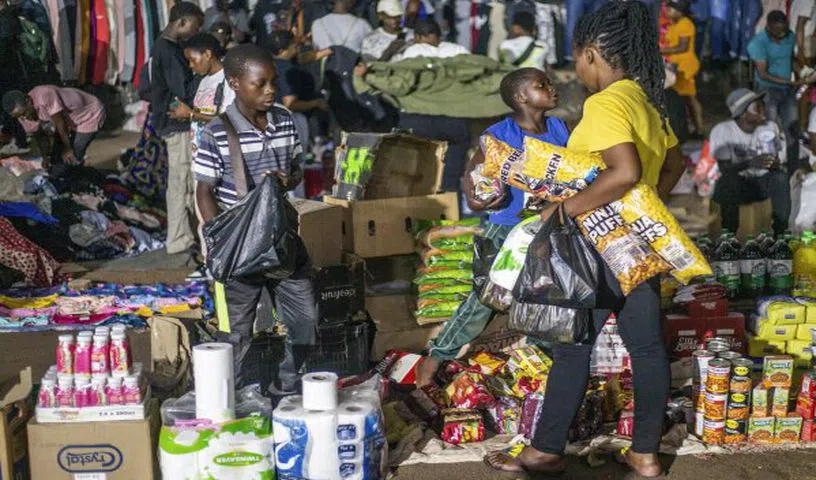Illegal night bazaars rule the roost as new currency woes hit traditional stores in Zimbabwe

Traditional stores struggle to survive as the volatility of Zimbabwe’s new currency, ZiG, pushes prices up
Harare (Zimbabwe): Batsirai Pabwe picked detergents, toothpaste, snacks and some pasta among several grocery items spread on the tarmac of a car parking space — an unorthodox night bazaar lit by cellphone flashlights and fluorescent lamps in Zimbabwe’s capital, Harare.
Traditional stores are struggling to survive as the volatility of Zimbabwe’s new currency pushes prices up. Many like Pabwe now shun them for much cheaper informal markets that pop up at night to avoid the glare of authorities.
From dusk, sidewalks, store or office verandahs and car parking spaces burst into unorthodox open-air bazaars, offering anything from groceries to fresh meat, electronics, clothes, medicines, fashion accessories and stationery.
Unfettered by expenses such as rising energy costs, taxes and laws that force formal retailers to accept the local currency at artificially low official exchange rates, informal traders, including children, offer better bargains. A box of juice that sells for $3 in a supermarket costs half of that on the street.
The once-prosperous southern African nation of 15 million people in April introduced a new gold-backed currency called ZiG, short for Zimbabwe Gold, to replace one that had been battered by depreciation and often outright rejection by the people.







